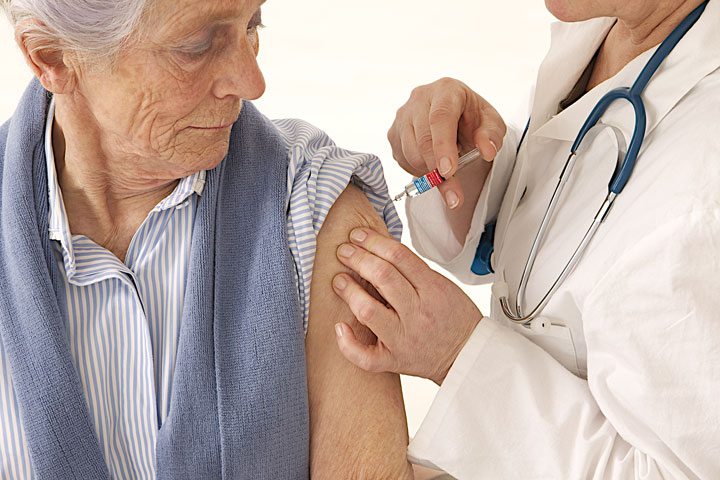Staying healthy takes a lot of work especially when you get older. A healthy lifestyle includes regular exercise, good eating habits, proper rest and even a good social network, but now that list includes getting your vaccinations.
According to US Department of Health and Human Services, older people should talk to their doctor about the vaccines that might keep them healthier a lot longer. Some of those immunizations might include shots you thought you were finished with when you were a child. While you may still be protected, many are not. Pertussis (whooping cough) and Diptheria are two that you might need once again. The doctor can do blood tests to determine if they are needed. The other vaccines you need on a regular basis are: Influenza, Shingles, Tetanus and Pneumonia. Researchers also have been studying mRNA vaccines, which were impactful against the coronavirus disease (COVID-19).
Influenza Vaccines — Important for You and Those You Love
Flu vaccines cannot only keep you healthy, if you live with someone who is at high risk from complications due to the flu, it could save their life. Vaccines.gov recommends you get your flu shot each year as soon as it is available. Each year there are new strains of flu and the experts do their best to include those news strains in each year’s vaccination.
Side effects are usually nothing more than headaches and body aches. Get immediate help if you have trouble breathing or your face begins to swell. Always check with your doctor before you get any shot. Some pre-existing conditions or prior health issue might make a flu vaccine not recommended for you. My mother is one of those people. She had Guilliane Barre syndrome.
Shingles — A Painful Experience
According to US Department of Health and Human Services, every one over the age of 50 should have a Shingles vaccine. It used to be recommended for people who had chicken pox as a child, but not anymore. No one wants the possibility of getting a horrible rash that makes it painful to move or even wear clothes. Immunity stays strong for at least the first 7 years after vaccination. If you already have shingles it’s recommended that you wait until their gone before you get a vaccine.
Over 65 — Get Your Pneumonia Shot!
Pneumonia symptoms include inflammation of the lungs characterized by fever, chills, muscle stiffness, chest pain, cough, shortness of breath, rapid heart rate and difficulty breathing, according to US Department of Health and Human Services. To prevent this bacterial strain of pneumonia, you need to get vaccinated. If you have a pre-existing condition, you might consider this vaccine at a much younger age. Just talk to your doctor. She or he will know if this vaccine is right for you. Be aware that there are three different types of vaccines for pneumonia. With over 30 different causes of pneumonia, identifying which one is not easy.
COVID 19 (Coronovirus)
Covid 19 (Coronovirus) was characterized by WHO as a global pandemic, with the first known case reported in Wuhan, China in 2019. The first vaccine to be released for the prevention of coronavirus disease was released by the FDA in December 2020. In the US, there have been more than 1.1 million deaths attributable to Covid 19 (the CDC tracks the trends in death by age, race, and sex beginning January 1, 2020).
Though the onslaught of the initial virus has been somewhat mitigated, there have been and will continue to be outbreaks of fast-spreading mysterious variants, such as Omicron and Delta, all of which difficult to forecast. Outbreaks of new variants bring new uncertainty.
However, vaccines have shown to be highly effective at protecting yourself and others from the development of serious symptoms as well as against new variants.
For more articles on Covid 19, click here .
This article has been updated December, 2023 since it originally published on April, 2016.
